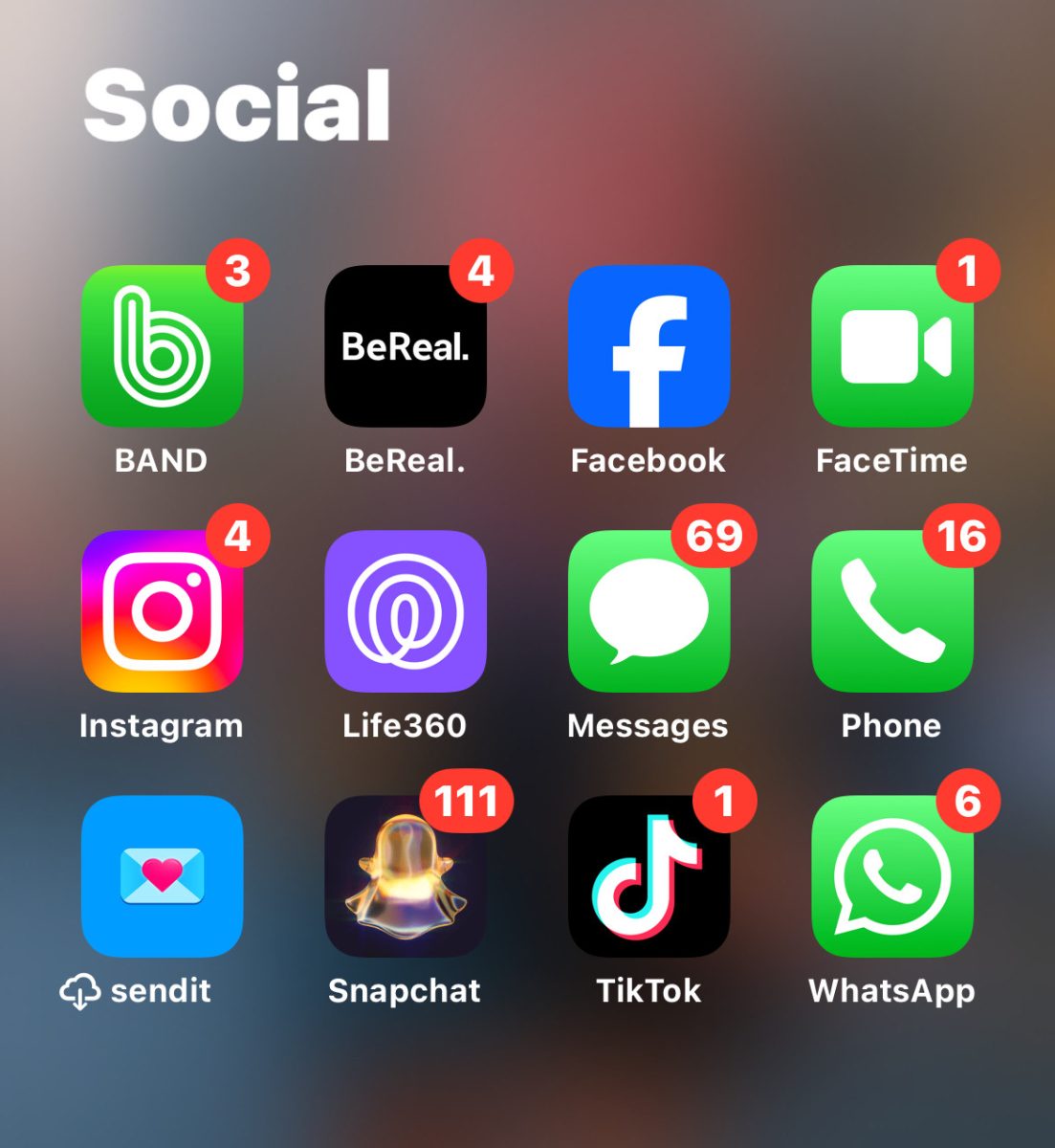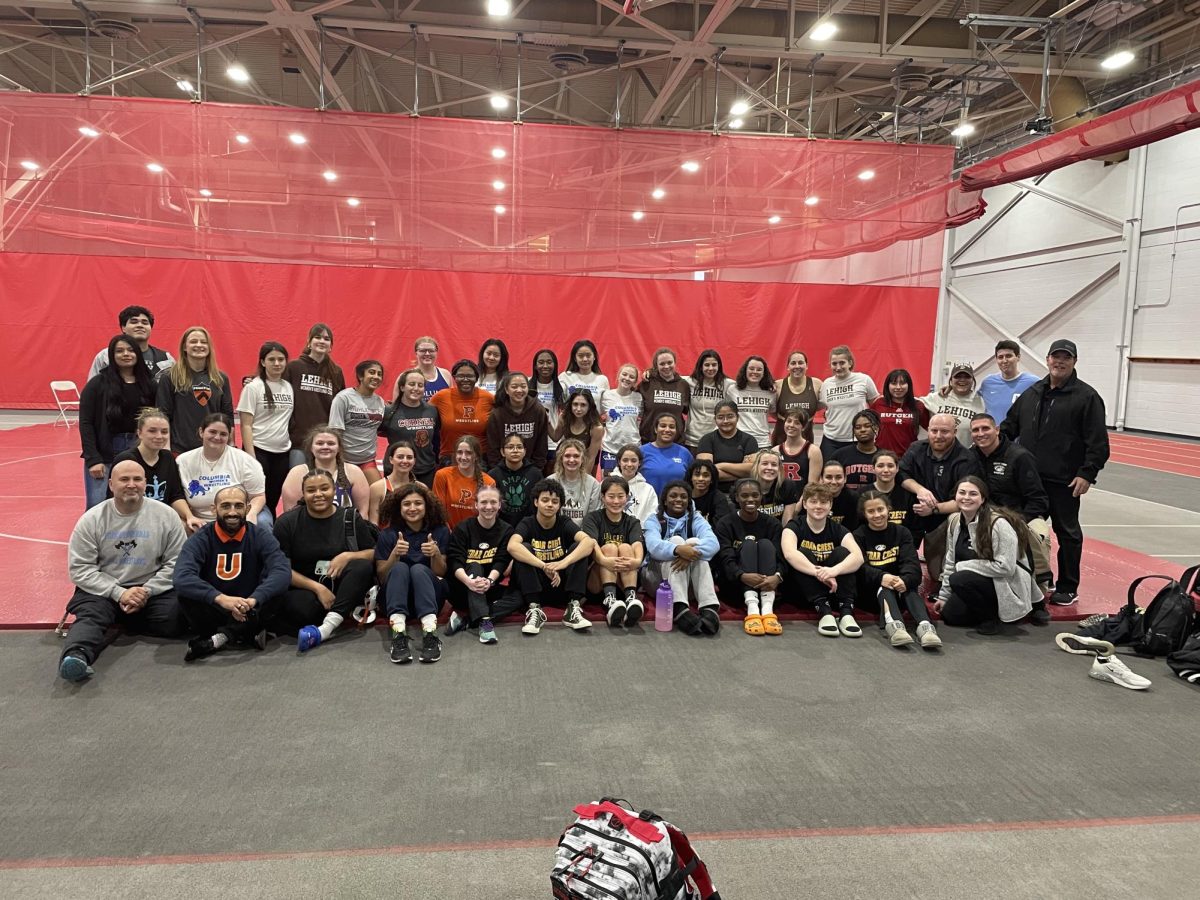Since the turn of the twenty-first century, technology and social media have become very prominent parts of people’s lives. There’s no doubt social media has a tremendous impact on people’s daily lives due to the increased ability for people to communicate and interact with others across many platforms. However, social media also has its downsides, especially when it comes to mental health. Upon closer inspection, how does social media impact mental health in teens?
In 2023, there were an estimated 4.9 billion social media users worldwide, accounting for over half of the population. Specifically in teens, surveys indicate that 90% of teens aged 13-17 have used social media in the United States, and 75% report having at least one active social media profile. On top of this, the average person spends 145 minutes on social media everyday, which can negatively impact overall well-being by fueling anxiety, depression, loneliness, and the fear of missing out (FOMO). Because the use of social media is deemed “normal,” it is easy to get lost in this virtual world.
Given this and the fact that many kids have had access to the internet at a young age, teens can be very susceptible to these effects. “I don’t remember a time when I didn’t have access to the internet, and I think I was given a tablet at maybe 7?” said sophomore Maggie Gorman. “As soon as I got this tablet, I have always had access to social media. I definitely get extreme FOMO from missing out. Seeing my friends hang out at events I couldn’t make always ends up making me disappointed, even though I’m always happy they had a good time.”
From watching endless TikTok videos to scrolling through an Instagram feed, social media has become such a common part of people’s lives, and what many do not realize is that an excessive use of social media can lead to an addiction. Research suggests that a social media addiction shares similarities with substance addiction in terms of brain activity. When one posts something, people online can interact with it, giving them a boost of dopamine, which is the “feel-good chemical.” This encourages that person to engage more on social media to keep experiencing the same feeling. Some of the common signs of spending too much time on social media are preoccupation with social media, withdrawal symptoms, neglecting responsibilities, negative impacts in relationships, and a loss of interest in hobbies.
“I would say social media affects my mental health badly and positively because I am so addicted to it, but it also inspires me sometimes,” commented sophomore Brooke Davis. “However, it can also sometimes become more stressful and exhausting to deal with. It prevents me from doing other activities as I would rather be on social media than, say, read a book. The constant need to be on social media negatively affects my mental health.”
Considering much of social media is heavily focused on physical appearance, many social media platforms provide users with options to use filters on images and videos. While this can be a fun feature, constant exposure to edited images can lead to viewers feeling self-conscious and disliking their own appearance. When a person is constantly comparing themselves to people online, unrealistic standards may be developed and they may start to feel bad about themselves. Additionally, there is a large amount of misinformation spread on social media, and seeing only the “highlight reel” of one’s life increases feelings of dissatisfaction.
“Social media makes me feel self-conscious sometimes when some people look unrealistic in their posts,” said sophomore Katie Whiteman. “It’s often difficult seeing the unrealistic parts of other people’s lives and then comparing it to my own,” Whiteman added. “I’d say that spending too much time on it can make me feel mentally and physically sluggish. It can definitely put me in a lazy state of mind.”
In today’s world, social media is here to stay and will only continue to evolve as it becomes more integrated in people’s lives. With the use of social media increasing across the globe, it is important to recognize the impacts from using this platform. While it may be challenging, it is crucial that people understand the importance of setting time limits and taking breaks from social media occasionally. Otherwise, social media will only continue to take over and preoccupy people’s lives.







